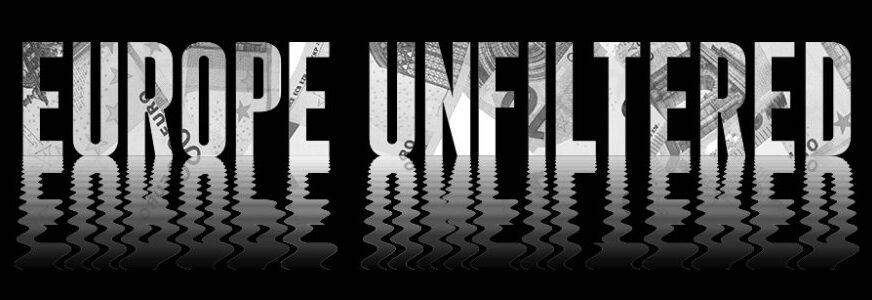Don’t imagine that for years on end you can make yourself the boot-licking propagandists of the Soviet regime, or any other regime, and then suddenly return to mental decency. Once a whore, always a whore.
George Orwell: As I Please
The wise thoughts of Orwell resonate just like they did seven decades ago.
Our list of people with questionable pasts within the European Parliament (or trying to get into it) grows longer every time we start to observe the list of candidates. Though Ilaria Salis is unbeatable amidst the many with shady morals, there are much more who would (at least should) not become MEPs in any other, rule-of-law abiding universe.
One of the last to enter the race to Brussels/Strasbourg is Hungarian Peter Magyar and his Tisza Party (basically a one-man show without other well-known faces).
Once a shameless beneficiary of government subsidies, he swooped to Hungary’s political scene in February, when – with a sudden awakening of conscience following his fall from grace – he became the figurehead of Hungarian opposition.
Since then, he gained fame by accusing the government of “widespread corruption” and “running a centralized propaganda machine”.
If anyone, he knows.
As the ex-husband of former Justice Minister Judit Varga, he was very close to the inner circle of Hungarian Prime Minister Viktor Orban. Up until a few months ago.
To start off his new career, he threw his ex-wife (who divorced him on grounds of abuse and domestic violence) under the bus without hesitation by releasing a two-minute recording from 2023 that incriminates the top-leaders of Hungary (including Varga) in a corruption case.
Weirdly, his conscience was silent until he was reaping the benefits of his wife’s position (even after their divorce). Or worse, it allowed him to use the file to try to blackmail Varga into staying with him.
Even if his conscience wasn’t loud or disturbed enough back then, his legal education should have raised an alarm, the latest after the divorce (until then, he was under no obligation to report/testify against a relative). Failure to report such a serious violation could easily put someone in the position of accessory to crime. Having recorded that meeting (in their own home, without the consent of his wife) makes it unlikely that he had no previous knowledge.
Described as “powerful insider” or “former official”, he first got into the spotlight as the pro bono defender of anti-government activists (understand: activists against the pre-Orban Gyurcsany-government) accused of committing various crimes during the 2006 riots.
Then, he fulfilled various roles within “the system”, having worked for the Ministry of Foreign Affairs and the Prime Minister’s Office, also serving as a diplomat in Hungary’s Permanent Representation in Brussels.
Magyar presumptuously claims that he represents higher morals than the government he’s fighting against, yet his conscience forgot to send him a memo about the ambiguity of his personal situation for years.
As his (now ex-) wife’s career progressed, so did his in tandem, eventually landing him at the leadership of the partially state-owned MBH Bank and other two state owned companies.
Well-paid and not-really demanding positions (one of the many paid yearly approximately € 40,000; another one brought in about € 107,000) from which he was dismissed after Varga’s resignation.
Well, Peter Magyar tells a slightly different version, in his Facebook post he announced that he resigned from those posts. Official statements claim otherwise: he was informed of being fired on January 18 and he accepted the decision.
Just to put it in perspective: the typical yearly gross income in Hungary is € 15,392.
The “corruption and nepotism” he despises also landed him at the helm of the Student Loan Centre (a powerful financial institution handing out loans to university students). And a few more jobs.
Speaking of nepotism, Magyar’s family has been prominent in Hungarian public sphere for quite a while. His grandfather was a judge (and host of a popular legal TV show), his great-uncle, Ferenc Mádl served as President of Hungary from 2000 to 2005, while his mother, dr. Monika Erőss is a senior figure in the Hungarian judicial system (currently deputy head of the National Office for the Judiciary). The apple didn’t fall far from the tree when it came to acquiring positions within the state hierarchy.
And it was the exact same “holding company of a few families” he now attacks that enabled him and his (ex-) wife to buy several apartments (with a combined worth of €513000) in a posh neighbourhood, way under the market price with only 4 percent upfront payment (the mortgage credit in Hungary is usually around 70 percent of the property’s value).
Not that they didn’t have properties before: the couple owns a house near Lake Balaton, also an apartment in Budapest they used for years as an Airbnb home (earning a meagre €15,000 a year from that side-business – that wouldn’t be a problem unless, in the same time, they wouldn’t have gotten state support to rent an apartment in Budapest due to lack of own property there).
Peter Magyar claims to be a whistleblower.
Only, a whistleblower decides to bring forth a serious crime or abuse regardless of the personal risks and losses (usually loss of job is the least problem on their list, it is not a coincidence that whistleblowers are often offered strong protection and anonymity).
Magyar decided to spill the beans only after he had nothing to lose (as he lost all his positions, so did his ex-wife), but much to gain as the “saviour of Hungary”, using his insider knowledge to attract political supporters.
In no time, he took over an existing, but dormant party, built a professional campaign staff and started to gather members, technical personnel, security staff and all; somehow managing to find resources to finance it all.
Haste makes waste, though.
It turned out just recently, that one of his closest confidants, Maria Sajer (manager of his secretariat, head of the economic section of the party, who also happens to be his new mother-in-law) spent four years in prison for organizing a pyramid scheme network in a multi-billion fraud case. Maybe she could give him some ideas on the process of campaign financing.
Orwell aimed his words at English left-wing journalists and intellectuals in criticism for their excessive Russo philia during the 1930’s and early ‘40s (and for their “self-censorship” that prevented them from disclosing or criticising the true nature of the Stalinist regime despite the mounting evidence).
After more than a decade willingly spent as accomplice and beneficiary of a system, one can’t simply pretend that his behaviour should have no consequences or that he can leave all that behind with a clear conscience.
Nobody can.

